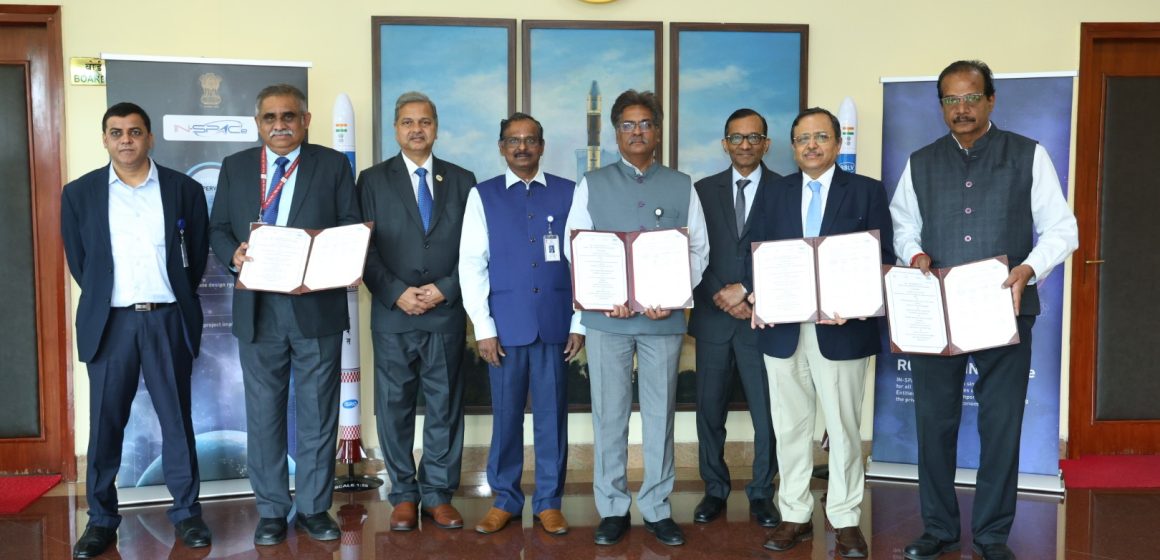Upon completion of the technology transfer in two years, HAL will begin building the Small Satellite Launch Vehicle, positioning the country to deliver reliable and affordable launch services for small satellites worldwide.
In a landmark move to deepen industry participation in India’s space sector, the Indian Space Research Organization (ISRO), NewSpace India Ltd (NSIL), and the Indian National Space Promotion and Authorization Centre (IN-SPACe) have signed a technology transfer agreement with Hindustan Aeronautics Ltd (HAL) for the production of the Small Satellite Launch Vehicle (SSLV).
Facilitated by IN-SPACe, this marks the 100th transfer of technology (ToT) agreement under the Department of Space, and is expected to significantly enhance India’s capabilities in small satellite launch services. As INFRASTRUCTURE TODAY reported on June 20, this could accelerate India’s emergence as a global hub for cost-effective, rapid-deployment satellite launches.
“With India’s liberalisation of the commercial space sector, opportunities are certainly growing,” said V Narayanan, Secretary, Department of Space and Chairman, ISRO. “This agreement is part of that movement, where ISRO will guide the HAL team on the preparedness-to-flight tangent of SSLV. This would define the next phase of deep-tech collaboration in space in India.”
The technology transfer process is scheduled to be completed within 24 months. During this period, ISRO will provide HAL with comprehensive training and technical support, covering commercial frameworks, integration protocols, and mission execution. The agreement follows HAL’s selection as the successful bidder in a competitive process managed by IN-SPACe.
Pawan Kumar Goenka, Chairman, IN-SPACe, added, “The SSLV technology transfer signals a vital leap towards strengthening the industrial ecosystem within India’s space sector. With this transfer, HAL will now independently take up the realisation of SSLV and cater to both domestic and international markets.”
IN-SPACe, an autonomous single-window agency under the Department of Space, plays a pivotal role in promoting and regulating private sector involvement in India’s space activities.
Towards Cost-Competitive Satellite Launches
HAL, which applied independently, was selected over two other consortium bids. The first comprised Alpha Design Technologies, AgniKul Cosmos and Walchand Industries, and another grouping, Bharat Dynamics, with Skyroot Aerospace, Keltron and BHEL.
“We are honoured to be in this league to scale India’s next big frontiers with the SSLV technology,” said DK Sunil, Chairman and Managing Director, HAL. “HAL will apply its engineering and manufacturing strength to build SSLVs, train the required workforce, and progress towards building a self-reliant ecosystem, so India can offer regular, cost-competitive small-satellite launches to domestic and global customers.”
According to Global Market Insights, the global lower Earth orbit (LEO) satellite launch vehicle market is projected to grow from $13.9 billion in 2023 to $44 billion by 2032. Key demand drivers include broadband and IoT constellations, imaging applications, and the miniaturisation of high-performance satellites.


